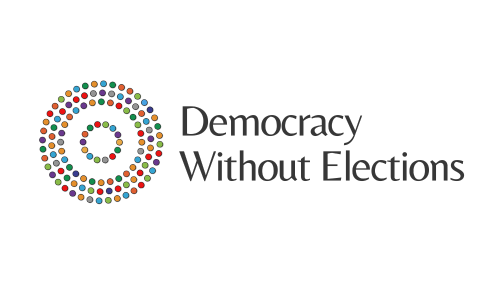For two hundred years, we have assumed that free elections bring democracy and good government. The media, politicians and some political scientists tell us so, but is this true? The governments we elect fail to effectively tackle urgent problems such as climate change and environmental degradation, even though most people want immediate action. Politicians blatantly disregard facts, corruption is widespread, and the influence of powerful lobbies and wealthy interests on politics is notorious. Although we call our system “representative democracy” in fact it is neither. Yet in spite of their obvious failings we continue, with a sort of collective blindness, to put our faith in elections – and to complain afterwards at the results.After listing in detail the failings of elections, this book presents a feasible alternative: sortition, (choice by lot), which, when used with suitable institutions, provides a much fairer representation than we see at present, giving a parliament which automatically takes into account the wishes of all citizens. In the model proposed any citizen may make proposals for laws, and the use of policy committees to do background research permits fair, informed and intelligent decisions even on complicated technical questions. The author shows how such a parliament can interact with the administration and the judiciary, gives examples of the legislature in action and shows the advantages of this system in eliminating corruption, incoherent policies, and the dominance of money, ideology, and crude, “tribal” loyalties among voters.We need reform, and this is the reform that will make other reforms possible.“Excellent. Well thought through, and well-argued.”—Terrill Bouricius, former Vermont Senator“Innovative, thoughtful, and well-written. I highly recommend it”—David Schecter, Political researcher“Punchy, concise, practical and clear. Wonderfully readable and non-academic”—Iain Walker, New Democracy Foundation
In our modern world of propaganda, social media enclaves, misinformation, and manipulation, the connection between 'the will of the people' and political action has broken down, political divisions are becoming increasingly intractable, and democracies are growing ever more ungovernable. Democracy is in crisis.
In Can Deliberation Cure the Ills of Democracy?, James S. Fishkin argues that deliberative democracy can have surprisingly positive effects on all of these problems and charts a unique path to fixing them with his method of Deliberative Polling. After decades of applying and perfecting the methods of deliberative democracy in countries all over the world, this book synthesizes the results of 150 applications and shows how the method can be applied to resolve many of democracy's seemingly intractable challenges. It can clarify the public will and depolarize our divisions. It can be applied to major national and local decisions, it can spread in schools, it can be used by corporations, it can make for more meaningful ballot propositions, it can help reform the primary system, it can scale with technology, and most importantly, it can help reform electoral democracy, help preserve the guardrails that protect the electoral process, and provide key policy inputs in almost every contested issue area from climate change to the rights of minorities.
Fishkin demonstrates that deliberative democracy is a practical solution if applied widely and lays out a vision for how to combine elections with deliberation to build a more deliberative society, one that cures our extreme partisanship and leads to substantive dialogues that foster mutual respect and more engaged voters. Deliberation provides a story of thoughtful empowerment and democratic reform, strengthening but not replacing our current institutions.
Citizens’ Assembly Overview Material
-
What Is A Citizens' Assembly?
General Public. Text (332 Words). A ChatGPT generated (with slight modifications) document that covers all of the components and process of a proper CA at a high level.
-
What If We Replaced Politicians With Randomly Selected People?
General Public. Infographic (24” x 18”). A screen capture frame from the "What if we replaced politicians with randomly selected people?" video with a QR code to the video on YouTube and the caption "In his talk Brett Hennig presents a compelling, coherent case of fixing broken democracy by replacing elected politicians with ordinary people. Sounds crazy? You’ll be surprised to hear, it actually works."
-
What If We Replaced Politicians With Randomly Selected People?
General Public. Video (09:32). Brett Hennig, on stage at TEDxDanubia, presents a compelling, coherent case of fixing broken democracy by replacing elected politicians with ordinary people.
Democratic Lottery (Sortition) Material
-
What Are Democratic Lotteries?
High School. Video (2:56). At time 1:30 this video explains the 3 level lottery process used by Healthy Democracy: 1. Send invitation letters 2. Use software tool to generate demographically diverse panels. 3. Select the winning panel by lottery.


